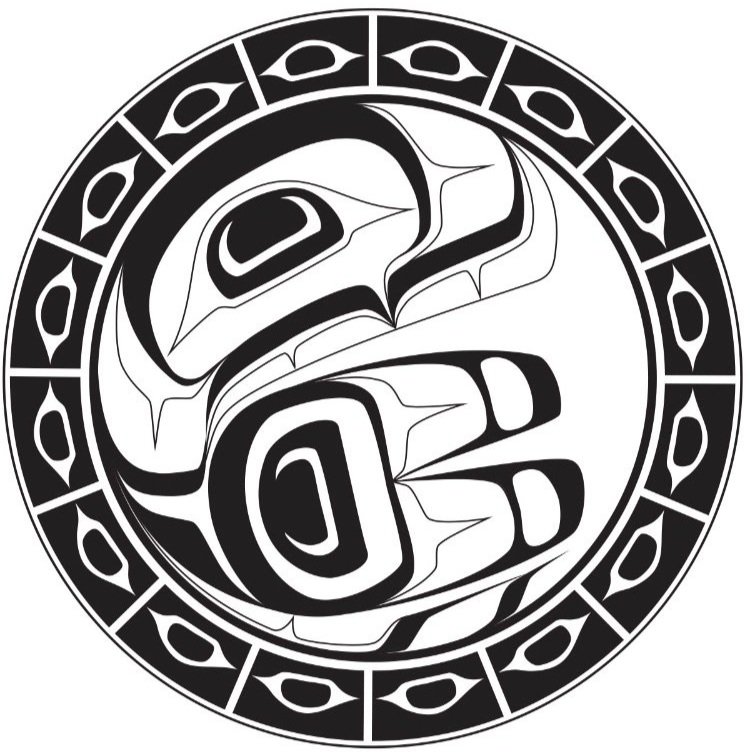When thinking about Orange Shirt Day and Residential Schools, what resonates is the loss of innocence. Children reach school age and ideally start school with innocence. How could orange represent Phyllis Webstad’s innocence, the day her shirt was taken away? The salmon egg represents the beginning of a journey, a birth, a hope. Like salmon, children grow into their world, their home, and they remember where home is. Residential schools were designed to make Indigenous children forget home, forget who they were, and forget where they came from. In that moment when the belongings are taken away, when the orange shirt was taken away from Phyllis Webstad, was when part of that innocence was taken away. It represents the culture that residential schools were designed to extinguish.
Culturally, salmon represents precious food resources for many British Columbia nations that reside up and down the coast and the inland rivers. It is something they identify with, it is home, and to most, it is medicine. Salmon are birth and hope. They grow and go out into the world and go back home. They always remember where home is. When looking at salmon, it is a way of seeing the world and part of understanding it.
The eyes are very important. They’re about seeing. For thousands of years Indigenous peoples have had to understand the relationships between each other and their surroundings, their place in it and within their communities. Seeing is recognizing the past, present and future — the ancestors, the current families, the future families who are not here yet.
It is important that we recognize those who have endured residential school, and those who come from families that went. Remembering helps our future. Remembering and teaching about it will help to make change. The salmon egg represents those students who went, who never forgot where their home was, and those who may not have made it back.
Orange Shirt Day design, commissioned by Vancouver School Board

